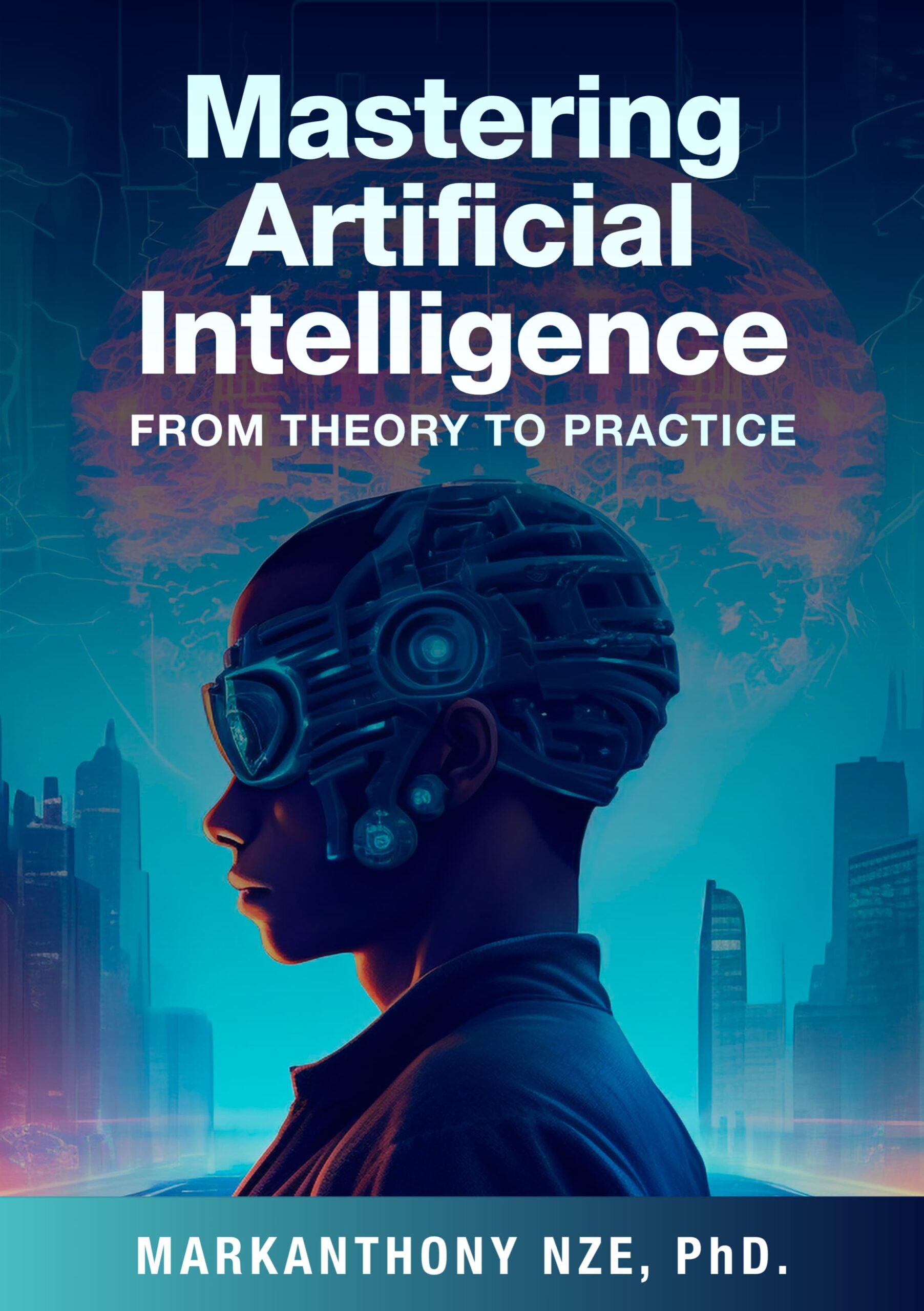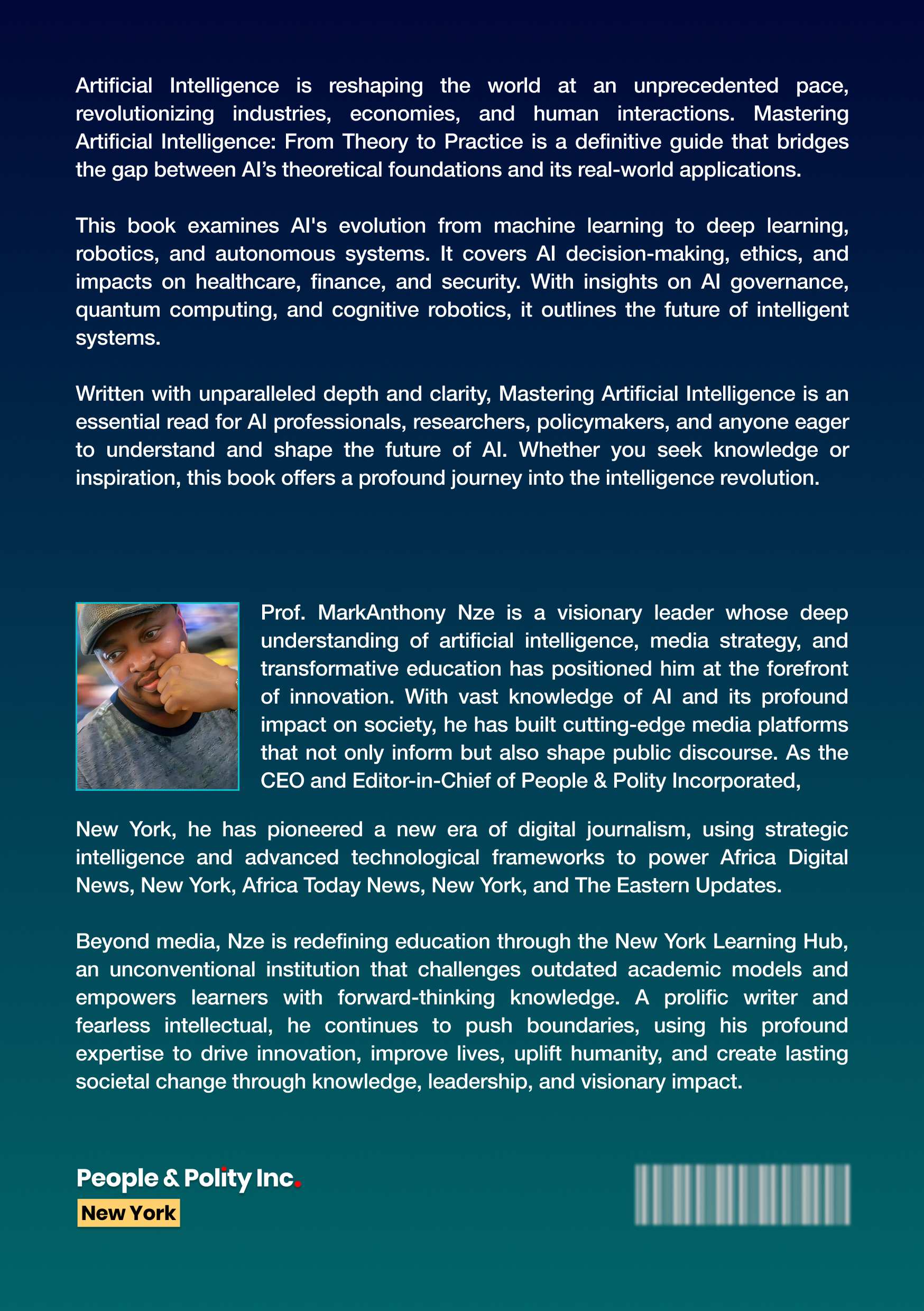Mastering Artificial Intelligence: From Theory to Practice
$12.99
Overview
Artificial Intelligence (AI) is no longer a distant vision of the future—it is here, shaping industries, influencing economies, and redefining human existence in ways previously thought impossible. Mastering Artificial Intelligence: From Theory to Practice is a groundbreaking exploration of AI’s evolution, mechanisms, applications, and ethical implications. Written with both intellectual depth and practical insight, this book serves as a comprehensive roadmap for understanding and leveraging AI in real-world scenarios. It bridges the gap between theoretical foundations and cutting-edge innovations, making it an essential read for technologists, policymakers, and AI enthusiasts alike.
At the heart of this book lies a profound examination of AI’s historical trajectory, tracing its roots from early mathematical models and symbolic logic to the rise of machine learning, deep learning, and neural networks. AI has transformed from rule-based expert systems into self-learning algorithms that process vast amounts of data, recognize patterns, and make independent decisions. By understanding these technological leaps, readers gain a clear picture of how AI has evolved and what lies ahead in its relentless march toward greater intelligence and autonomy.
The book explores intelligent systems and cognitive computing, showing how AI mimics human reasoning, adapts to new environments, and processes information through reinforcement learning and neural architectures. It covers machine learning algorithms, including supervised, unsupervised, and deep learning models like convolutional and transformer-based frameworks. These insights highlight AI’s ability to perceive, analyze, and respond to its surroundings, making it essential in today’s world.
One of the most captivating aspects of this work is its exploration of autonomous robotics and AI-driven decision-making. AI is no longer confined to software—it is embedded into intelligent machines that navigate the physical world. The book dissects computer vision, sensor fusion, real-time decision-making, and human-robot interaction, highlighting how autonomous systems are revolutionizing industries like healthcare, logistics, and defense. From robotic surgery to self-driving vehicles and space exploration, the discussion showcases how AI is extending human capabilities beyond traditional limits.
Beyond technical innovation, the book tackles AI’s ethical, social, and legal challenges. As AI becomes increasingly autonomous, who is accountable for its decisions? How do we ensure that AI remains transparent, unbiased, and aligned with human values? The book addresses pressing concerns such as algorithmic bias, data privacy, mass surveillance, and the socioeconomic impact of automation. These discussions highlight the need for responsible AI governance, international regulations, and development frameworks centered around human interests to prevent unintended consequences.
A key theme running through the book is AI’s potential to address global challenges. With its ability to process immense datasets and identify patterns beyond human capability, AI is being harnessed to tackle climate change, disease outbreaks, financial fraud, and geopolitical instability. The book presents real-world case studies where AI is accelerating drug discovery, optimizing renewable energy, and enabling precision agriculture—offering tangible solutions to humanity’s most pressing problems.
However, with great power comes great responsibility. The book warns against the existential risks of unchecked AI development, including the dangers of autonomous weaponry, deepfake misinformation, and AI systems outpacing human control. It calls for a collaborative approach between governments, researchers, and industries to ensure that AI remains a tool for progress rather than a disruptive force of chaos.
Looking toward the future, the book explores emerging technologies that will shape the next frontier of AI, including quantum computing, brain-machine interfaces, artificial general intelligence (AGI), and cognitive robotics. These advancements promise unprecedented levels of intelligence and automation, but they also raise profound philosophical questions about the nature of consciousness, free will, and the ethical boundaries of machine autonomy.
Mastering Artificial Intelligence: From Theory to Practice is a forward-thinking guide to AI’s future impact. It prompts critical thinking on AI’s societal role, advocating for responsible innovation. Ideal for AI researchers, business leaders, or anyone interested in intelligence, this book offers deep insights into today’s most disruptive technology.
Vendor Information
- Store Name: Amadioha
- Vendor: Amadioha
- Address:
- No ratings found yet!










Reviews
There are no reviews yet.